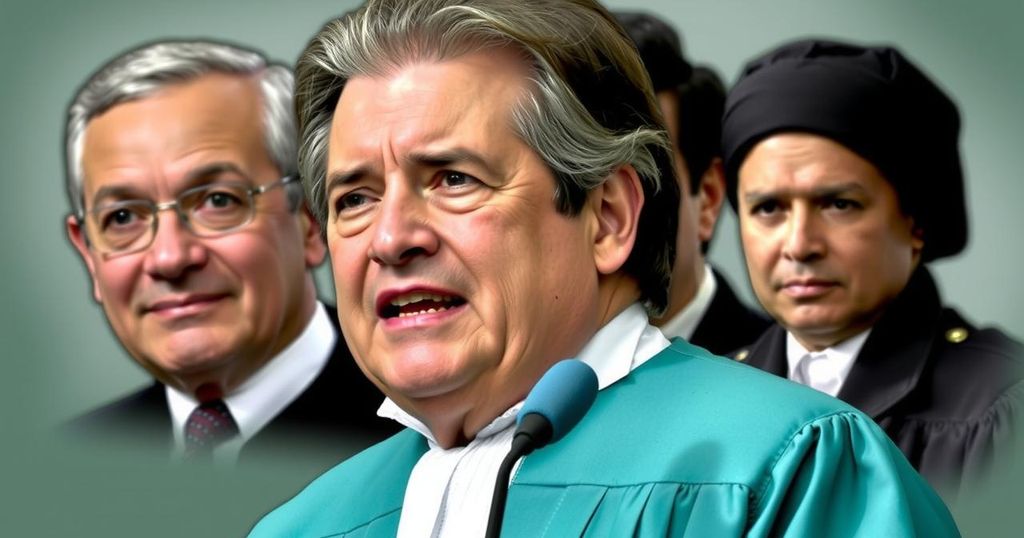Bolivia’s Judicial Elections: A Test of Democracy and Judicial Independence

Bolivia’s judicial elections have sparked debate due to the country’s unique practice of electing judges. Despite the ban on campaigning, candidates have employed creative strategies to gain visibility. The elections have faced delays and allegations of political manipulation, leading to significant voter apathy. Observers from Mexico are closely monitoring the situation as they prepare for similar judicial reforms. The results could have far-reaching implications for judicial independence and governance in the region.
Bolivia’s recent judicial elections have garnered attention due to the unusual nature of electing judges, a practice not seen elsewhere globally, except for an impending similar reform in Mexico. Despite the ban on formal campaigning, candidates have resorted to creative tactics to attract voters, such as using product packaging and subtle promotions to gain visibility. However, widespread voter apathy has diminished support for this electoral system, with many citizens expressing confusion over the candidates on their ballots. Critics have described judicial elections as detrimental to democracy, citing concerns over political influence crippling judicial neutrality.
The election process has faced significant turmoil, particularly illustrated by the Constitutional Court’s controversial decision to delay the elections, sparking accusations of power manipulations between President Luis Arce and former President Evo Morales. While voters prepare for the partial election of four out of the nine Constitutional Court judges, skepticism remains due to low participation rates in previous elections.
The outcome of Bolivia’s election is particularly consequential, as it could impact future electoral strategies and governance not only in Bolivia but also in Mexico. Observers from Mexico’s National Electoral Institute are closely monitoring the events to learn from the Bolivian experience, especially in light of its own judicial reforms as initiated by former President Andres Manuel Lopez Obrador.
Bolivia stands unique in its approach to judicial elections, where citizens vote to fill top judicial positions, diverging from most nations that employ a nomination process. This electoral model, established in a judicial overhaul over a decade ago, was intended to enhance democratic practices but has led to accusations of politicization of the judiciary. The criticism from international observers emphasizes concerns regarding the erosion of judicial independence and balance of power, making the elections a focal point of debate among both scholars and practitioners of law.
In conclusion, Bolivia’s judicial elections represent a crucial intersection of politics and law, reflecting the challenges of maintaining judicial integrity within a democratic framework. The ongoing power struggles, voter apathy, and historical precedents of controversy surrounding judicial appointments raise questions about the viability and future of such electoral processes. The outcome of the elections not only influences Bolivia’s judicial landscape but may also serve as a cautionary example for similar reforms in other nations, particularly in Mexico.
Original Source: www.voanews.com







